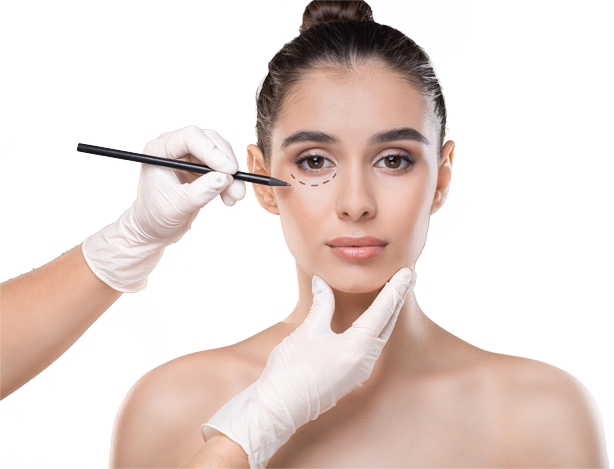Acne and sebum control
Most Popular Procedures
Acne and sebum control are two closely related topics in skin care. Acne is a common skin condition characterized by the presence of pimples, blackheads, whiteheads, and other types of blemishes. Sebum is an oily substance that is produced by the sebaceous glands in the skin, and when sebum production is excessive, it can lead to acne.
To control acne and sebum production, it’s important to understand the causes of these conditions and to use skincare products that help to regulate sebum production and prevent breakouts. Here are some tips for acne and sebum control:
Keep the skin clean: Washing the face twice a day with a gentle cleanser can help to remove excess oil and dirt from the skin, which can contribute to acne. Avoid using harsh soaps or scrubs, which can irritate the skin and worsen acne.
Acne and sebum control
Multiple Treatment Options
Use topical treatments: There are many over-the-counter and prescription topical treatments that can help to control acne and sebum production. These may include ingredients such as salicylic acid, benzoyl peroxide, retinoids, or azelaic acid. These ingredients work by unclogging pores, killing bacteria, reducing inflammation, or regulating sebum production.
Moisturize: Contrary to popular belief, moisturizing is important for acne-prone skin. When the skin is dehydrated, it can trigger the sebaceous glands to produce more oil to compensate, which can lead to acne. Use a lightweight, non-comedogenic moisturizer to keep the skin hydrated without clogging pores.
Avoid pore-clogging ingredients: Certain skincare and makeup products can contribute to acne by clogging pores. Look for products labelled “non-comedogenic,” “oil-free,” or “won’t clog pores.” Avoid heavy, greasy products and opt for lightweight, water-based formulations instead.
Consider dietary factors: While there is limited scientific evidence to support a link between diet and acne, some people find that certain foods can trigger breakouts. Common triggers may include dairy, sugar, and processed foods. Experiment with your diet to see if eliminating certain foods can help to improve your acne.
Remember that it can take time to see results when it comes to acne and sebum control. Be patient and consistent with your skincare routine, and consider consulting with a dermatologist if your acne is severe or persistent.
Faq
Frequently Asked Questions
A. Acne is caused by a combination of factors, including excess sebum production, clogged pores, bacteria, and inflammation. Hormonal changes, stress, and certain medications or cosmetics can also contribute to acne.
A. Sebum is an oily substance that is produced by the sebaceous glands in the skin. It helps to lubricate and protect the skin, but when sebum production is excessive, it can contribute to acne.
A. To control sebum production, it's important to keep the skin clean and use skincare products that help to regulate sebum production. Look for products that contain ingredients such as salicylic acid, benzoyl peroxide, or retinoids, which can help to unclog pores and reduce sebum production.
A. While there is limited scientific evidence to support a link between diet and acne, some people find that certain foods can trigger breakouts. Common triggers may include dairy, sugar, and processed foods. Experiment with your diet to see if eliminating certain foods can help to improve your acne.
A. Stress can contribute to acne by increasing sebum production and triggering inflammation in the skin. Finding ways to manage stress, such as through exercise, meditation, or therapy, may help to improve acne.
A. If you have acne-prone skin, it's important to avoid using harsh soaps or scrubs, which can irritate the skin and worsen acne. You should also avoid heavy, greasy products and opt for lightweight, non-comedogenic products instead.
A. If your acne is severe or persistent, you should consider seeing a dermatologist for treatment. A dermatologist can prescribe stronger medications or treatments, such as oral antibiotics or isotretinoin, which can help to improve acne.






